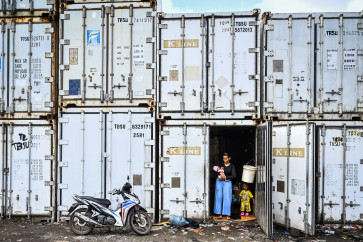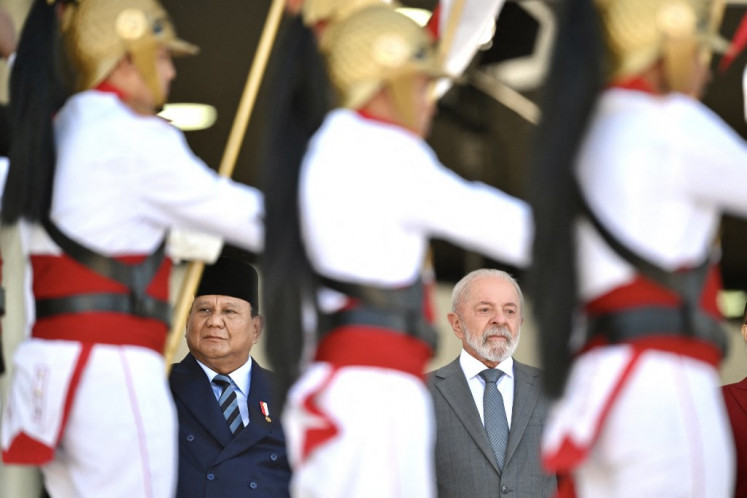Popular Reads
Top Results
Can't find what you're looking for?
View all search resultsPopular Reads
Top Results
Can't find what you're looking for?
View all search resultsBullfrog farming gaining ground
Bullfrog farming has proven hugely popular in Bali, due to the open local culture and fine infrastructure network, says an industry executive
Change text size
Gift Premium Articles
to Anyone
B
ullfrog farming has proven hugely popular in Bali, due to the open local culture and fine infrastructure network, says an industry executive.
"In regions outside Bali, particularly in Java, bullfrog farming is still seen as a controversial idea because of the MUI's *Indonesian Ulema Council* religious verdict saying Muslims should not eat frog meat," Yohannes Sugianto, from Bali Summer Bullfrog, said recently.
Bali Summer Bullfrog is a local private company that since 2005 has developed bullfrog farms across the resort island.
"Here in Bali, the local culture does not view bullfrog farming as a problem. So this sector has experienced a significant growth in the last few years," Sugianto added.
He also pointed out the island's extensive infrastructure network, including the high number of regular flights to overseas destinations, made it an attractive place for companies and individual farmers focused on bullfrog farming.
"Bali is perfect suited to becoming the country's bullfrog farming hub," he said.
Bali Summer Bullfrog first introduced bullfrog farming to local farmers in Badung regency, before expanding to other regencies, Sugianto said.
"The farmers set up their farms with their own money and without any assistance from the local administration," he said, adding the company acted as the primary buyer and exporter of the product.
He claimed bullfrog meat was a very promising commodity that commanded good prices and had huge domestic and international markets.
"Besides catering to demand from Bali, our company also ships bullfrog meat to Jakarta and Singapore. The demand from these places has increased steadily," Sugianto said.
The rising demand and limited yield capacity of the local bullfrog farmers, he went on, had forced the company to temporarily limit its foreign market scope.
"Companies in other countries have approached us and expressed their eagerness to purchase bullfrog meat from us. However, until we can guarantee a steady and sufficient supply from local farmers here, we'll have to focus on our current markets," he said.
He added the time was right for local farmers to increase their production capacity.
One pioneer bullfrog farmer in Denpasar, I.B. Putra Swanditadiana, said he began breeding bullfrogs a year ago in the vacant yard at his parents' home.
"The initial investment is quite high, because we have to construct ponds for the frogs," he said, adding he had built 20 tiny ponds that hosted an average of 50 bullfrogs each.
The new business nets Putra at least Rp 500,000 in profit each month.










